Homeschool vs Public School vs Private School (Pros and Cons)
Homeschool vs public school? Private school vs public school? Which education option is right for your family? This guide co-written by Gina of GinaMPoirier.com and Brittany of EquippingGodlyWomen.com will help you decide which education option is right for your family.
“Will you consider homeschooling?”
Gina: Even before my husband and I were married, it was important to him that we start talking about our kids’ education.
We weren’t planning on having babies right away and their school days would be even further in the future. But he wanted to know upfront if I would be willing to homeschool our kids.
This question was certainly not what I was expecting.
I had attended public school. He had been homeschooled. I had no idea where to begin! But, true to my promise, I started researching the homeschool vs public school possibilities when our kids were little.
Ultimately, I decided to try homeschooling and have stuck with it for six years with three kids (now in fifth, third and first grade).
Brittany: Like Gina, I also grew up going to public school, and it was a very positive experience for me. When I was younger, I just assumed that someday I would send my kids to public school as well.
I even got my degree in Elementary Education so I could be a public school teacher too!
My husband did ask once if I ever wanted to homeschool our kids. After all, I am a trained teacher, so we were both confident that I could do a great job.
I did research homeschool vs public school, but as our family grew and we got to know each other and our distinct personalities, we knew: Homeschooling is not the right option for our family.
Instead, our children go to a private Christian school during the school year, and I homeschool them during the summer to help them retain their learning. This combination works really well for our family!
In the current climate of social distancing with unknown implications in the coming months, many parents are reconsidering their school choices. There are a lot of pros and cons of homeschool, public school and private school. And while some people clearly know what they want for their family, it’s not always a clear-cut decision—even within the same household!
We’ve compiled the pros and cons of these schooling options to help you consider what’s best right now for your family.
*This post contains affiliate links, which means if you make a purchase, I may make a small commission at no additional cost to you. This helps cover the many costs of running this site and allows me to help provide for my growing family. Thank you!
How Can You Find (and Follow!) God’s Will For Your Children’s Education?
Your children’s education is about more than just where they will learn reading and math — it’s also about your needs as a mother and wife (and maybe teacher!), and your family’s culture and values.
It can feel overwhelming to think of all the possible outcomes of your choice for your kids’ education. How can you know if you are following God’s will or your own?
My newest book offers encouraging guidance and practical tips that you can use today, as you discern what is God’s will for your children’s education.
Practical, encouraging, and full of biblical truth, Follow God’s Will: Biblical Guidelines for Everyday Life (along with the Follow God’s Will companion workbook) is designed to help you answer questions including:
- What does God want me to do?
- How do I apply the Bible’s instructions to my life today?
- Where is God calling me personally?
- How can I make a difference right where I am?
- How should I navigate relationships with those who think, act, or believe differently than I do?
- And so many more!
Want to start reading for free?
Simply enter your first name and email below, and I’ll send you an exclusive “first-peek” right away, right to your inbox!
[thrive_leads id=’23588′]
Pros and Cons of Homeschooling
Gina: After six years of homeschooling, I’ve become very familiar with the many options available and the pros and cons of homeschool. I’ve have built my confidence, discovered my preferred educational philosophy, found a community and a curriculum I love, and identified my kids’ individual learning styles. I love homeschooling, but I also recognize that it’s not a good fit for everyone.
Here are the pros and cons of homeschooling you need to consider:
Pros of Homeschooling:
- You are in charge of your child’s learning. Being a homeschooling parent is somewhat like providing your child with private tutoring. You can adjust your curriculum and teaching approach to their learning style and pace. This is especially beneficial for kids who have learning disabilities, or are ahead or lagging behind their peers. There is less pressure to “keep up” and less time wasted in class since you don’t have to cater to a large group. You also have more freedom to explore your child’s personal interests.
- You can build your homeschooling schedule around your family’s needs. Imagine getting up in the morning and not being in a rush to make it to school dropoff because you can start school whenever you want. Whether you prefer year-round school, travel school, or one of the many other options, you have the freedom and flexibility to make your school schedule work for your unique situation.
- You can prioritize your family’s values. Educating with a biblical worldview is a huge reason many Christian families decide to homeschool. If you’re concerned about the material and values that a public school education promotes, homeschooling is a viable alternative.
- You have more opportunity to build family relationships. When your kids are at home most if not all of the day, you have more opportunities to strengthen family relationships, from parent to child and also child to child. While there are also more opportunities to argue and get on each other’s nerves, homeschooling families tend to be close and connected due to all of the time their members spend together.
- You can protect your children from negative social influences. Bullying and peer pressure are problems all kids can face in a classroom environment. While you can’t shelter kids forever, keeping in the home more does limit some exposure to negative influences.
These benefits of homeschooling are great options for families to think about when choosing homeschool vs public school vs private school.
Cons of Homeschooling:
- It’s a huge commitment for parents. I’m not going to lie; there have been days when I would look longingly at the school bus and wonder whether I was really cut out for this. As a homeschooling parent, you are sacrificing much of your free time and other interests in order to prioritize your children’s education. It’s important to recognize that commitment and do what it takes to stick with it.
- It can be expensive. This may come as a surprise, but when you add up the cost of supplies, curriculum and fees for co-ops and enrichment activities (not to mention extracurriculars), you can easily spend hundreds, or thousands, of dollars per child per year. There’s also the cost you may incur from not being able to work (or work more hours) if you would have otherwise been able to.
- There may be fewer elective options. Especially as your child gets older, you may find that they aren’t able to participate in certain activities and classes they might be interested in. These might include school sports and certain performing arts.
- It’s possible for kids to fall through the cracks. While most homeschool parents are dedicated to providing quality education (homeschool students typically score higher than average on standardized tests), it’s possible that they aren’t able to provide all of the resources their children need to succeed academically. Depending on where you live, you may or may not have access to special education, college and career preparation, and other specialized resources. Some parents might also have difficulty teaching core concepts.
- Kids have less peer-to-peer social interaction and “real-world” exposure. This is a common concern about homeschooling, as students will not have the same opportunities as kids in classroom environments to interact and work with their peers for several hours a day. It’s debatable how damaging this can be in the long-run, as many homeschool students are involved in daily social interaction in other ways, including co-ops, extracurriculars, volunteering, playgroups and employment when they’re old enough. If socialization is a concern for you but you’re still interested in the benefits of homeschooling, you will have the make the effort to provide social interaction and real-world experience outside of the home.
Pros and Cons of Public School
Gina: Both of us attended public school and thrived. So while it may not be an ideal choice for everyone, both of us can attest that you can go to public school and be a well-educated, faithful Christian as an adult.
Brittany: Personally, I loved public education because it really highlighted my faith and helped it grow. When I attended a Christian college (where everyone believed the same thing), it was easy to take my faith for granted. It didn’t feel as “real.” Attending public high school forced me to know what I believe and why, it gave me opportunities to share my faith with others, and it helped me develop confidence to share God’s Word with people who don’t agree.
Obviously, you have to balance that with the very real risks of public education. (You have to know your kids.) But it was a very positive experience for me.
Pros of Public School
- The teachers are qualified. All public school teachers are required to have undergraduate degrees, and many have additional certifications. While a degree doesn’t guarantee an excellent teacher, it does guarantee someone who is trained as an educator.
- There may be more resources available. Since public schools are large organizations that are funded by the government, they may have more access to a wide range of resources to meet students’ needs than other options. This is especially important for kids who may require special education and individualized attention for learning disabilities and special needs. What’s more, students may have more opportunities to participate in more activities like sports and the arts.
- Kids get exposure to the real world and social experiences. Kids in public schools will naturally have more exposure to a more diverse population than they would in a private school or homeschool. They’ll get real-world experience in dealing with difficult situations and aren’t as likely to be surprised by the challenges of the real world after they graduate. They also have more opportunities to stand up on their own Christian faith rather than that of their parents or teachers.
- It’s free(ish)! While any parent can tell you that supplies and fees can get quite pricey, public school is still less expensive than the alternatives. Plus, it gives parents the option to work while the kids are at school.
These amazing benefits of public school are good to consider when researching homeschool vs public school vs private school.
Cons of Public School
- Classes are not taught from a biblical worldview. This can be a big hang-up for Christian families who are concerned about what is being taught and how it is affecting their children.
- Classroom sizes are large. The larger a class is, the more difficult it is for a teacher to focus on each student and address their educational needs. Depending on what resources a particular school has, some students will be left behind and others will be bored and understimulated.
- There are more negative social influences. Bullying, peer pressure and negative messaging can come from anywhere in a child’s life, but they are especially prevalent in public schools. The problems can be worse in large student populations that are difficult for teachers to regulate.
- It’s driven by standardized testing. While accountability for school districts and teachers may be necessary for some amount of quality control, many schools’ number one focus is getting students to pass tests. This can be frustrating for teachers and students alike and can suck the joy and creativity out of the learning environment.
- The quality can vary significantly. Public schools are not one-size-fits-all across the country. There are many excellent public schools and many terrible ones. There are also excellent teachers and terrible ones within the same school. Whether a public school is beneficial for your family may depend on where you live.
Related reading: Five Prayers Every Christian Momma Should Pray for Her Kids
Pros and Cons of Private School
Brittany: For some, private school may feel like the “best of both worlds.” Your children get to go to school with other children and receive a quality education but without quite the same level of “risk” as public schools. Not all private schools are Christian (many are, but not all), but it may be easier to find a close-knit community of loving teachers who truly care about your kids in a private school than a large public school.
Pros of Private School:
- The quality of education is high. While there’s no guarantee, chances are that if you’re willing to pay significantly for private school tuition, the school should be offering high-quality education. Good private schools have smaller class sizes, highly qualified instructors and a range of options for students.
- Kids have positive social influences. While bullying, peer pressure and negative influences aren’t entirely avoidable, you may find less of them in a private Christian school. Your children may have more exposure to kids from Christian families that share your values.
- Parents can leave their kids with caretakers they trust. If you as a parent need to work during school hours or care for other children, you might feel more confident leaving your school-aged kid under the supervision of a Christian-led organization instead of under the supervision of government-run schools.
These benefits of private school can help guide you decide which is best for your family: homeschool vs public school vs private school.
Cons of Private School:
- It’s expensive. You can spend thousands of dollars per child per year on private school tuition. While prices vary and sometimes scholarship opportunities are available, private school isn’t even an option for many families due to the expense.
- It’s not an impenetrable bubble. While private elementary schools and private high schools may be Christian, not everyone who attends is. And not everyone who considers themselves a Christian cares to act like it either. Especially when they have uncles and older cousins and friends from their neighborhood who make a rebellious lifestyle look so cool.
- It may not prepare students for the “real world.” What happens to your kids when they graduate from a private Christian school and head off to a secular college? Suddenly, the rule book is thrown out the window, everything is different, they’re a little disoriented (and probably a little insecure because while they’re technically adults, it sure doesn’t feel like it at 18!), and not everyone around them is looking out for their best interests.
- Resources may be limited. While you might find highly qualified instructors in a private school, it may not have all the resources that a public school would simply because it is a smaller organization. If your child has a specialized need or has certain interests, the options might be limited in a private school.
Brittany: Personally, we LOVE both the Private Christian preschool our children attended and the Private Catholic school they attend now. The teachers are wonderful, and we trust them to not only help our children get an education but also turn into good people.
No Christian school is perfect. Even in the great Catholic school our children attend, our kids have been exposed to plenty of things I don’t agree with — both from the students AND the teachers. You’ll have that at any school. But it’s been a really positive experience for us overall.
Benefits of Christian Education:
- Your children will receive religious education classes. Sunday School is great, but it tends to be a mix mash of random lessons and Bible stories. A quality Christian school will provide your children with a great framework for truly understanding the Bible, including major stories, verses and themes, as well as Christian theology and history.
- The curriculum won’t contradict your religious worldview. It’s crazy how much anti-Biblical content can find its way into public school textbooks–even in the lower grades! Christian school curriculum undergoes a screening process before selection, however, so you’re far less likely to see questionable material pop up in your first grader’s homework.
Related reading: 10 Back to School Bible Verses to Memorize with Your Children
How to Decide: Homeschool vs Public School vs Private School
Gina: It can be tough deciding which education options are best for your family. You may find that what is best for one child isn’t the best for another, and you may not stick to the same option from kindergarten through twelfth grade.
Choosing between homeschool, public school and private school should be done prayerfully, and the decision probably needs to be revisited regularly as your kids get older. But here are some questions that can help you be more confident in whatever you decide.
Questions to Ask Yourself:
- What are your top priorities in your kids’ education?
- What do you hope for your kids by the time they graduate?
- What are you as a parent willing to commit to when it comes to your kids’ education (financially and with your time and energy)?
- How important is a biblical worldview in your kids’ education?
- What are the social, emotional and spiritual needs of your children and where will they be met?
- Are you and your spouse (if applicable) in agreement? If not, where can you make compromises?
Discover God’s Will for Your Home and for Your Children
How can you follow God’s will for your family when faced with life’s big questions? How can you hear God’s voice and follow His will as a mother in all the busyness and noise of school, sports, friends, and growing?
I share my experience with these questions in my brand new book, Follow God’s Will: Biblical Guidelines for Everyday Life, along with the Follow God’s Will companion workbook.
Practical, encouraging, and full of biblical truth, Follow God’s Will is designed to help you answer questions including:
- What does God want me to do?
- How do I apply the Bible’s instructions to my life today?
- Where is God calling me personally?
- How can I make a difference right where I am?
- How should I navigate relationships with those who think, act, or believe differently than I do?
- And so many more!
Want to start reading for free?
Simply enter your first name and email below, and I’ll send you an exclusive “first-peek” right away, right to your inbox!
[thrive_leads id=’23588′]
When you consider Homeschool vs Public School vs Private School – which education option sounds most appealing to you and why? If your choice has been narrowed down to Homeschool vs Private School – which do you think you will choose and why?


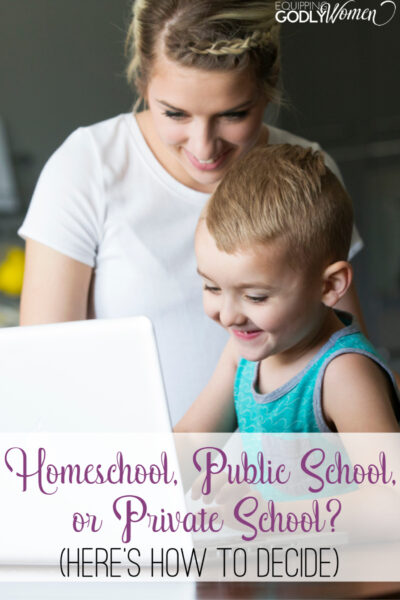
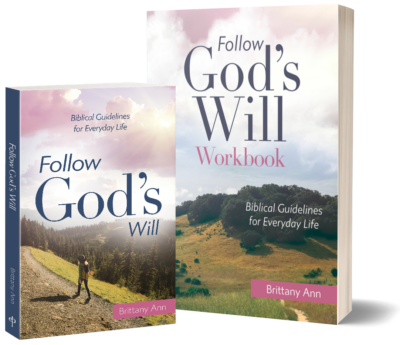
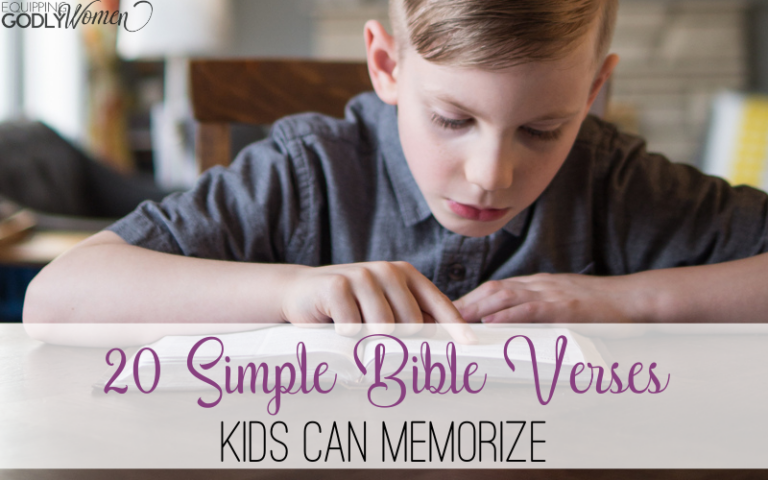
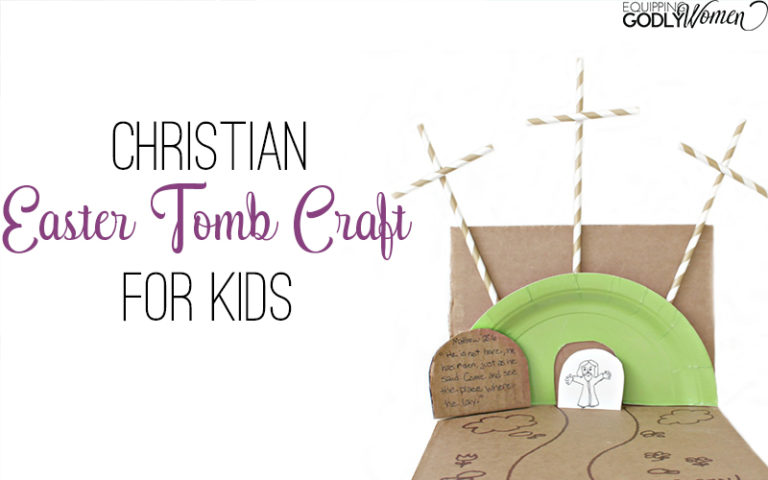

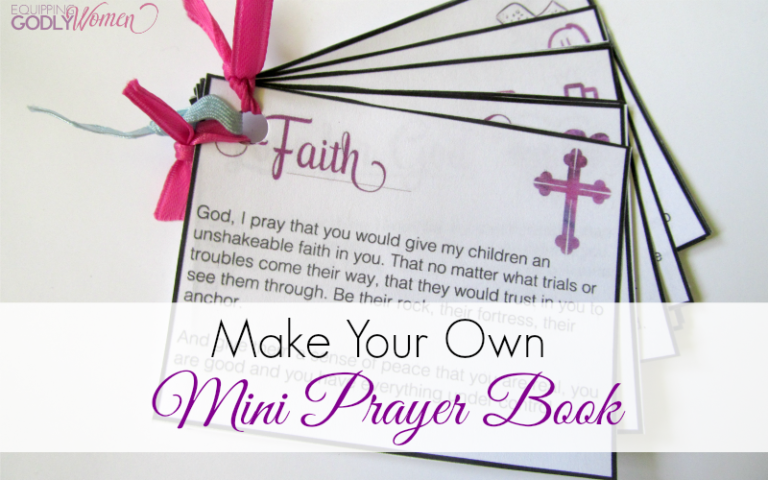
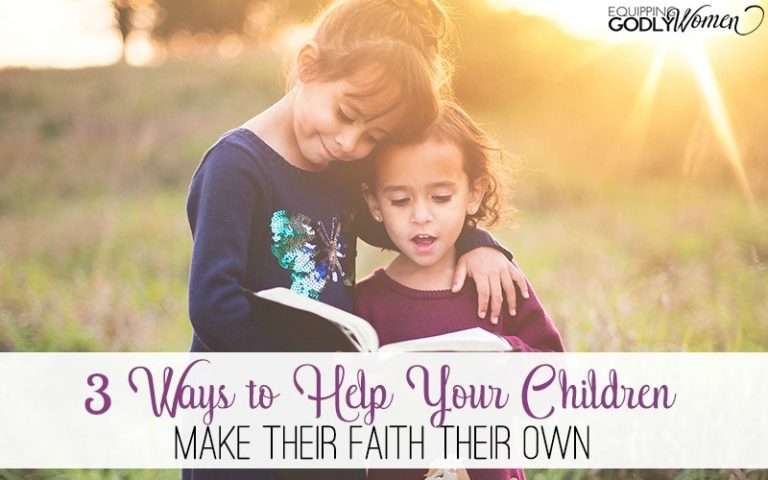
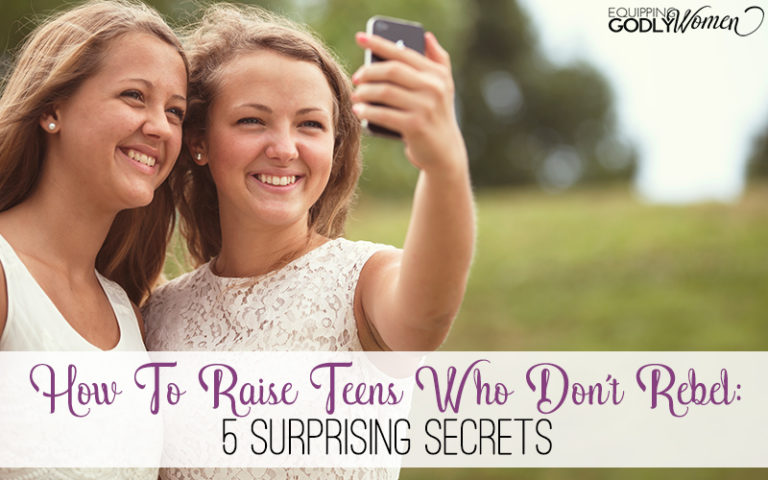
I am a student at a Christian high school, and I am attending a Christian college. I do not appreciate you saying people who are in these ‘bubbles’ do not go through real trials.. christians have just as many problems as the next person in a secular school. I believe my Christian college will equip me for the workforce, and my faith will grow. I do not appreciate you saying students do not have “real” problems who go to Christian schools. Very inaccurate and God doesn’t weigh our issues, we are called to bloom where we are planted.
Hi, Kylie. I’m sorry, that was not the intended message of this article at all. This isn’t meant to be a piece about how many trials high school kids have or don’t have at Christan schools, but a warning to Christians parents that private Christian school won’t solve all or prevent all of the trials their kids may face growing up. There are still things to watch out for — and these three are simply three examples of very common things that can happen.
That is exactly what I got from your article! I did homeschool, part home/part public and then a private school. Frankly, we were shocked at our Christian School that there was no one in either of my girls classes (elementary) that had families that even attended church. We were like weird. Birthday party invites were common on Sunday’s. My kids were mocked about it. My part public school/ homeschool experience had twice as many Christian families. My problem is I am a poor homeschooler. I am gifted in Medical not teaching. I need a school. Many if not most in my Church believe we would harm our girls in regular public. The combo school put me in constant service and teaching even others kids which I am not cut out for. So, we are searching and struggling for the right fit. We left our Christian School when inappropriate behavior was be overlooked because of the importance of the family it involved. No behavior like that would have be tolerated at all in public school and would have had some serious consequences. In our case more non Christian’s attended than Christian and that did affect the school. At $12,000 a year for two for at least the next 5 years you expect to have more assurance that it is a healthy environment than the free one down the street.
Wow, this is insightful. My daughter is only starting pre-k this year at her private christian school and she’s been there since 2/3 years old. Im the ONLY one in my family thag attends church regularly and tries to expose our kids to God as much as possible. Hubby doesnt want to, but supports my choice. I did believe i thought keeping her in her private christian school will protect her. I truly do. Im SO afraid reading everyone’s experiences and such that if i put my daughter in public school starting with kindergarten, that she’ll be thrown to the wolves. I cant stop crying from feeling like no matter what, there is a challenge with my life and kids to raise them in the Lord. I pray that whereEVER i send them, that they will have a strong faith and will rely on only me and God to get them through. All they have is me and our church to teach them. This post has given me so much so much anxiety. I just want what’s best for my babies. ?
Of course you do! And don’t freak out too much, just be smart. If you are the only Christian influence in your home, then Christian school should be so good for them! Just make sure you stay involved 🙂
I had a pastor ones that said during the grammar stage pre-K through six grade you should keep the kids at home than in middle school uses them in a Christian school and then in high school send them to the public when they are ready to be a light. There is nothing wrong with building a strong foundation for kids in a bubble. The entire Jewish community in the Bible operated that way children were taught by their parents they were taught about God nonstop in the home and that’s OK. Whenever you put children in any school you were abdicating authorit to teach your children to the teachers and overseers of those children. Some of these teachers you absolutely do not agree with it all. I think it’s fine to nurture up a child in their foundation years in the way you think is best.
Best comment. ??
Hello Lauren and anyone with input:
My husband and I have talked about putting our children in Christian school for awhile. I have always been more for it than my husband has (the expense obviously being the largest thing in question). My heart has always been back and forth on the subject because the expense is one we can afford, but one that I’m not sure is worth it. We are seeing a liberal agenda being pushed in public school systems, and are fearful of our child’s future. While we are active in the inside/outside of our home with teaching our children about God, it seems the world is moving further and further away from Him. I do feel like Christians are in a time of trial, and attacked for their beliefs, example: simply not supporting or disagreeing with the LGBTQ movement and what it often entails or abortion “rights.” Recently, the school system district that my husband went to his whole like had a personal development day for certain schools in the district that pushed an unbelievable agenda – slides from a PowerPoint presentation were released saying things like “Black people can’t be racist because they lack authoritative power over white people.” The same school district just accepted their first registered transgender child – in Kindergarten. While, this is the reality of the world we live in, my fear is that I will teach my child Biblical beliefs and send her to a public school that tells her the opposite and doesn’t allow her to voice her opinions without growing condemnation. People I went to high school with went to liberal colleges for education and have come back pushing liberal agendas to impressionable children – a girl I know, now a teacher, asked a room full of high school students if they believed teachers should be armed (I don’t think they should be), and basically told the kids they were stupid for thinking that teachers should be when they all raised their hands, answering “yes.” This is in East Tennessee – a mostly conservative area. Part of me wants my children to flourish in a school that allows them to fellowship with other believers and have the freedom to express their beliefs, but I’m not naive enough to believe that worse things can’t happen in Christian schools than in public schools. It’s also apparent that we need more Christians in public schools – what if my child is the only “church” that another child ever sees? I am heartbroken over the state of the world that are children must experience. It is beyond scary and infinitely perplexing.
I now teach in a jail in our county in central Florida. I have taught in a prison at one time but it was the worst experience I have ever had in my life. I only stayed there for 2 months. I hope to never have to go back to teach in a prison(some do well and really enjoy teaching in prisons). I do enjoy the teaching in the jail but it is such a negative experience sometimes. I am now considering teaching in a Christian school. But, I am indecisive at this time. I am doing a lot of praying about it at this time. I believe I am being led to teach children in the Christian school but again I am somewhat indecisive. There may be some of “I want a change” in my thoughts.
I found your article very, very interesting. I have been quite successful at this jail which is due to the Grace of God and a sheriff who is very supportive and also a living example of a true Christian man. In my opinion, he is a phenomenal Christian man.
I hope no one of those whom have read your article has children who have experienced what some of the inmates have experienced in life. Some of the stories are heartbreaking. I also know that some of the stories are just that, stories.
Thank you for your article and sharing it with us.
Thank you for your input on this issue. My daughter has gone to private Christian school since first grade and had a positive experience until last year (6th grade – middle school). It was a challenging year for many reasons but basically was overshadowed by getting in trouble for first time ever and discipline enforced was severe. To the point that she feels like she is being judged and now wants to go to public. I’m worried she is running away from rather than facing it by wanting a new start and thinking public would be better. I don’t know what to do…middle school is hard at any school. She got in trouble for using bad language once and was suspended for a day for it. She lashed out at someone who had been bullying her. Punishment didn’t seem to fit crime but she admitted she was wrong and finished the year out in good standing. How can I help her move forward.
Thanks for your input.
This was my confirmation! Thank you! I home schooled my daughter up to 7th grade. We chose a Christian school for 7th grade. It was a smooth transition and prepped her for her life’s next stage. We would make the same choice again. Now, for 8th grade I have agonized about putting her back in the school or going public. I too felt that the Christian School was a bubble, but you know what those things you think you’re protecting them from do seep in. I found out after the school year that there was a problem with kids and suicide tendencies. My daughter was oblivious apparently, but still there they were! Wed find that issues are more often hidden than brought to light and as Christians aren’t these things supposed to be brought to light? My husband and I decided 8th grade public school after touring the middle school. There were wings for each grade and they did not intermix at lunch so it has a small feel that we felt would also be another smooth transition from private school. They seemed to have more to offer the kids. The kids need to know how to deal with life and adapt to different personalities with different opinions. Luckily our daughter has always been good with adapting to change. The bubble bursts at some point and we didn’t want it to be a shock. I do find that at our school the kids are still socially awkward. My husband and I both went to different public schools and don’t have good things to say about our experiences. Dear God let it be different for our daughter. Again thank you for this post.
Hey, every school is different and every family is different. You have to do what is best for your family!
I found this article very true in the fact that my Christian education had all of these dangers. My parents weren’t very religious but thought that if they sent me to a Christian school it would protect me from what they didn’t believe in like evolution, comprehensive sex ed classes, and “the failing public school system”. Being in a private school led my entire family into a bubble as they thought the education would help me succeed later on. Unfortunately, when my school shut down due to lack of funding and I was sent to public school, I was wildly unprepared for math and science courses. My teachers would talk about certain parts of evolution and theorems that I should have learned years earlier, and not knowing them would cause embarrassment because everyone else in my class knew about them. Years later, in college, I still struggle with concepts I should have learned when I was younger and I spend much time re-learning things I was taught. I absolutely love science and am a microbiology major but having gaps in my education and a very different experience from most of my peers leads to many awkward office hours conversations with my professors. Another hidden danger I would add to sending your kids to private school is part of the bubble but making sure that your children are getting a good education by overall educational standards and not just the standardized tests of the private school. Not all private schools are as sketchy as mine was though.
I come to all this from a different perspective and unfortunately don’t have a lot of time to write a full response. I was/am a highly-awarded teacher who has taught in LARGE public high schools, small and medium charter schools, and small Christian schools. I have to say that I found the public high schools and charter schools to be head and shoulders above the small Christian schools academically. This even though the administration was constantly badmouthing traditional schools and claiming that its students were years ahead. I heard and experienced AWFUL things in the “Christian” schools: a teacher who yelled out in a meeting, with not so much as a gasp in response from the crowd, “I WANT my children indoctrinated!” Folks, this never works, let me tell you, from having watched HUNDREDS of young people come of age and go off to college (many of whom keep up with me through the years). The indoctrination DOES NOT work. Teach your children to experience things and weigh them with reason and their hearts. I think the most damaging aspect of the Christian schools was the pervasive atmosphere that knowledge, too much of it, was somehow dangerous. There was, oddly and with a bit of irony, a highly ARROGANT notion that knowledge drives one to arrogance, which it most certainly can but this does not justify the stilted and frivolous way academic topics were treated. Believe it or not, and this was the most shocking aspect to me as a believer, I found that the Christian schools were MORE PROGRESSIVE in their teaching methodologies than the traditional schools. Yes, there is much progressive modeling done for teachers in the public schools, but the bureaucratic nature of the enormous beast (haha) allows more teacher autonomy than is typically assumed. The charter schools were FAR less progressive. Comically, the teachers in the Christian schools could not see that their anti-intellectualism (understand this was not all people, but more than was helpful) CONTRIBUTED to their unquestioning acceptance of progressive teaching methods. Overall, I have been personally very happy with my children’s performance in the public schools, for reasons mentioned above by many, most of all that encountering the world as it is actually trains a stronger believer. If I had to say which one was best, it would be the charters (which are public!) when they are governed by intellectually serious leadership.
Thank you for adding this perspective! I think it’s definitely going to depend on the school, but yeah, (some) private schools can definitely get stuck in “this is the way we’ve always done this.” That’s why it’s so important to not JUST choose a school because of the Christian label — but to make sure it’s actually a good school too!
I have seen a couple other dangers, ones that are not addressed in articles like these.
Some people I know sent their kid to a very expensive private Christian school for grades K-12. They struggled to pay for the education. So much that they were unable to save any significant amount for college. Now they are struggling to pay for college at a state school. The amount that went into the primary education could have easily bought 3 or 4 bachelor degrees at an ivy league school. That seems reckless and indulgent to me.
But the real problem I see is, their son, being raised in this oh-so-cushy bubble, had peers made up mostly of kids from very wealthy families. His parents made sure to obscure the fact that they they were not also wealthy like these peers. As a result, he lives in an illusion. He has significant pressure to live large and indulge like his friends. To have expensive taste when in fact, he nor his family can really afford it. My parents would have called this 1) living beyond your means and 2) spoiling the child rotten.
How is this good?
The other thing that confuses me is, Christ ministered to the poor, the sick, the undesirable. How can a school identify itself as a ‘Christian School’ if it is only available to the wealthy, the elite, the ‘desirable’? I realize it takes money to run a school but it certainly sounds more like a private school that claims an environment of Christian-like principles, and is available to the wealthy, the socioeconomic segregationists, maybe even the elitists.
My kids private school is mostly
Poor and immigrant families. Most on scholarships. You’re making a huge generalization that private school is only rich. I disagree, most our school is poor and many parents even illiterate first generation immigrants.
The most dangerous thing I learned as a kid at a private Lutheran (Missouri Synod) school was the concept that every day, I was committing evil on par with Hitler. Beginning in 1st grade, when they taught us the difference between the Catholic church (which gradated sins and provided “indulgences”) and Luther, they heavily emphasized the tenet that all sins are equal, that all sinners are equally sinful. The logical conclusion to a first grader with a brain still in early stages of development was that I was as hideous as a mass murderer. Thus when lessons and bible verses about how “the last shall be first” came, I was fully on board to do everything I could to put myself last. I deserved NOTHING; I was treacherous and evil; the only way to redeem myself was by asking for Christ’s forgiveness, and the only way to receive Christ’s forgiveness was to be fully sincere in my devotion to Christ, to the Word, and to placing others’ needs and wants before my own.
In 2011, I suffered a case of “catastrophic antiphospholipid syndrome,” which is a severe autoimmune reaction causing systemic blood clotting. I suffered two heart attacks and multiple strokes at age 27. During my two weeks in the cardiac ICU, I had a hard time ever pressing the call button to get the nurses’ attention. I knew there were other people in the hospital who were just as much in need as me, and therefore, from the Christian perspective my brain adopted early on, it was my duty to put them first.
My parents, who sent me to the Lutheran school, asked why I wasn’t calling nurses more often even though they encouraged me. I explained to my parents what I learned in school, as explained above. My parents were shocked that the school taught us kids that we were so evil.
My teachers certainly had the best of intentions, and indeed they and other members of the connected church participated very frequently in community service, making almost weekly trips south of the border to Tijuana to help the poorest of the poor. However, with their good intentions came anti-intellectualism. They refused to listen to “worldly” scientists; they refused to such an extent that they themselves did not understand the theory of evolution and taught us students a strawman. When I later did learn the theory of evolution as an adult, I saw that it makes perfect sense, that we have examples of it occurring all around, and that so many of the remaining anti-evolutionists are sadly unaware of their ignorance and at the same time unwilling to accept that they are not experts; they feel expertise but do not have it. If anything, we would expect a Christian school to teach the humility required to recognize when we are NOT experts; instead, my school taught me to take pride in refusing to listen to those scientists with proven expertise. (Take for example my 4th-grade teacher who would not admit that “Earth is large, so it causes gravity to occur” does not explain why gravity exists. Rather than admitting his ignorance of relativistic physics or that he didn’t know what area of physics even explains gravity, he sent me to detention.)
Unfortunately, the anti-intellectualism involved in opposing evolution has transferred over to a distrust of climate science thanks to economic and political forces that appropriate religiosity in America.
I exited my literalist faith via a great deal of bible study in college. Two moments contributed greatly:
1. My uncle, who had been a church organist, came out of the closet and broke his wife’s heart. When she went to my grandma and asked, “do you know why he left me?” my grandmother replied, “yes, I’ve known all along that he’s gay.” I did a lot of research on the pentateuch and Pauline passages Christians use to demonize homosexuality and found that the cases discussed in the bible were more analagous to sexual slavery than the loving relationships we see in gay couples these days.
2. In a religious studies course, one professor presented the parallels between Genesis 1 and the Babylonian creation myth Enuma Elish. Seeing the parallels (six stages of creation, going in the same order, with a 7th stage of rest and peace) and the differences (Genesis having only ONE God creating in peace, while the Babylonian story has many gods at war) emphasizes that the purpose behind Genesis 1 was NOT to lay out a specific history of the universe’s creation but instead to emphasize that Jews follow the one and only God that exists. AND! This helps us reconcile the fact that Genesis 1 and Genesis 2 have different timelines. Neither was a factual history. Jews today understand this. A strain of American Christianity for some reason eschewed connection to thousands of years of sacred-text interpretation and began reading Genesis 1 as though it were a strictly factual history. Recognizing how my Lutheran school/church strayed from the original intentions of biblical authors, I then set about studying the text without the literalist trappings.
Since then, one of my classmates from the Lutheran school committed suicide; another, who had clearly been gay since kindergarten, attended a camp to try to force himself to be straight. We learned some evil stuff that taught us to hate ourselves; it damaged basic elements of our humanity, specifically because we learned it so young.
To any parent interested in sending kids to such a school, I’d ask that you pay close attention to what the student is learning and think in terms of psychological development just as much as spiritual.
Yikes! That’s awful!
I went to a Christian college. Not only did I experience much sexual harassment but also stalking by my ex-boyfriend and because the college was so small I could never get away from someone who wanted to harm me. Eventually, I was told I needed counseling and they started me on anxiety meds which to this day I am still on. After feeling extremely judged by all of my so-called friends and even all of my professors, I was told to let all that abuse go and be friends with my abusive ex. In addition, I was VERY unprepared for the real world. When I got to graduate school I had no idea how to handle different ideas and theologies than my own (a large part of graduate school is voicing opinions and seeing both sides of an argument in an unbiased way). Also, I had no idea how to handle being around friends who partied and drank so I ended up spending several nights and days throwing up without realizing this was something other people knew from high school and college partying. Needless to say, I am still struggling with fitting into society and balancing scientific views with my faith in addition to finding and maintaining healthy relationships. My faith probably was more destroyed than enhanced from this experience. I have to say I agree with you wholeheartedly about being in a bubble and not handling issues which may arise when faced with challenges outside of Christianity.
Oh no! I’m so sorry you had to go through that! That’s not okay!